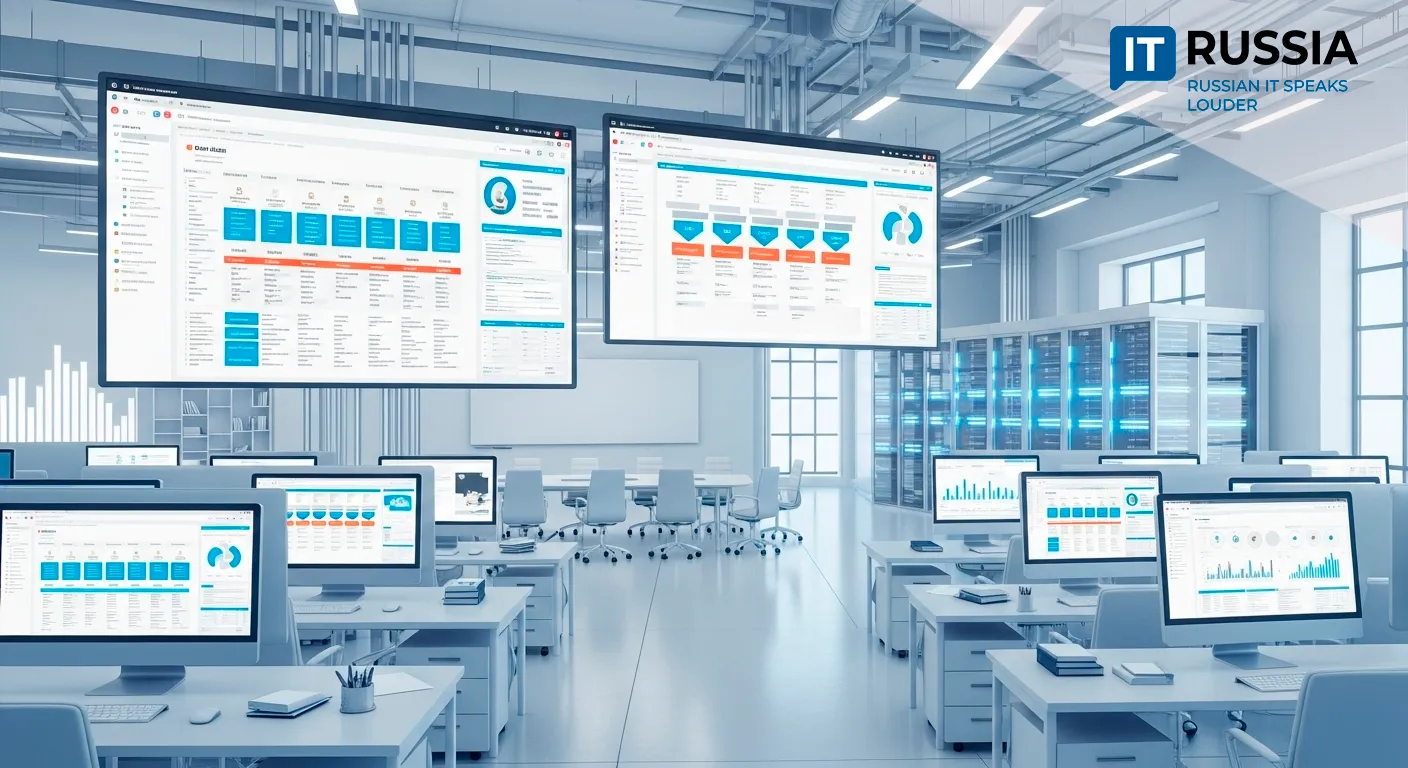Russian Companies Are Shifting to Domestic CRM Systems—and Seeing Real Results

The switch to Russian-made CRM platforms is not just a matter of independence—it’s proving to be a smart business move.
Streamlining Operations Through Unified IT Systems
Sercons Group, a major Russian player in certification and compliance documentation, has completed a large-scale migration to a domestic customer relationship management system. The company integrated its client operations into a unified ERP platform built on the Russian-made 1C solution, consolidating management and operations into a single data environment. The result: enhanced business process transparency and reduced overhead. The ambitious rollout reached over 3,000 employees across 20 cities in Russia and abroad and connected the company to 100,000 partners across 25 business sectors.
Import Substitution That Delivers Business Value
This implementation stands out not just for its technical significance, but for what it signals: import substitution in Russian CRM is working. By replacing foreign systems with local alternatives, businesses are reducing their exposure to geopolitical risks—and boosting performance. According to IT-World, 1C:CRM implementation improved process transparency and operational analytics, increased purchase frequency by 15%, and raised customer lifetime value (LTV) by 20%. These figures show that localizing IT systems can deliver not only autonomy, but measurable ROI.

Russian CRM Systems Eye Global Expansion
Sercons’ experience sends a clear message to the international community: Russian CRM solutions have the maturity to compete on the global stage. Its successful deployment proves the export potential of Russian IT products, especially in the CIS and developing countries. Cases like this enhance trust in the 1C platform outside Russia and lay the groundwork for its global scaling.
Driving Growth Across Russia’s IT Ecosystem
Domestically, the shift by large corporations to Russian software is accelerating the growth of the broader IT sector. Demand for 1C solutions is activating an ecosystem of partners and developers—including key players like 1C-Rarus and AKAM. This is translating into new jobs, workforce upskilling, and stronger market positioning for Russian-developed software. Current growth areas include advanced analytics, task automation, and interdepartmental process optimization—all of which directly contribute to enterprise IT efficiency.

A Trend Rooted in Strategy, Not Just Sanctions
While geopolitical pressure accelerated the transition, the shift to Russian-built CRM systems began years earlier. Between 2019 and 2020, government agencies and major corporations began adopting 1C ERP and CRM solutions—starting with state-run institutions like multifunctional centers (MFCs) that offer one-stop access to government services. By 2021, national telecom giant Rostelecom began migrating its systems to 1C. The movement gained momentum in 2022–2023, as global vendors like Salesforce and Microsoft Dynamics were increasingly replaced by local alternatives. In 2024, even financial powerhouses such as Sber and Tinkoff deepened their CRM integrations with 1C to accelerate digital transformation and customer centricity. The Sercons case is a prime example of this trend: Russian CRM tools aren’t just substitutes—they’re offering better functionality and cost-effectiveness tailored to local regulations and business workflows.

Toward a Competitive, Homegrown IT Infrastructure
The Sercons project is part of a broader transformation. Russian tech infrastructure is proving not only viable, but commercially effective—driving customer retention and boosting revenue. Experts forecast that by late 2025, more large enterprises in sectors like certification, documentation, and regulatory compliance will switch to domestic CRM/ERP platforms. From 2026 onward, exports of 1C-based solutions to CIS and global markets are expected to grow, thanks to their strong track record and performance metrics. This will increase competition among Russian software developers and integrators, spurring innovation in BI modules, machine learning analytics, and mobile tools within the 1C ecosystem. The Sercons case is not an outlier—it’s a signal of a system-wide maturation of Russia’s IT landscape.










































